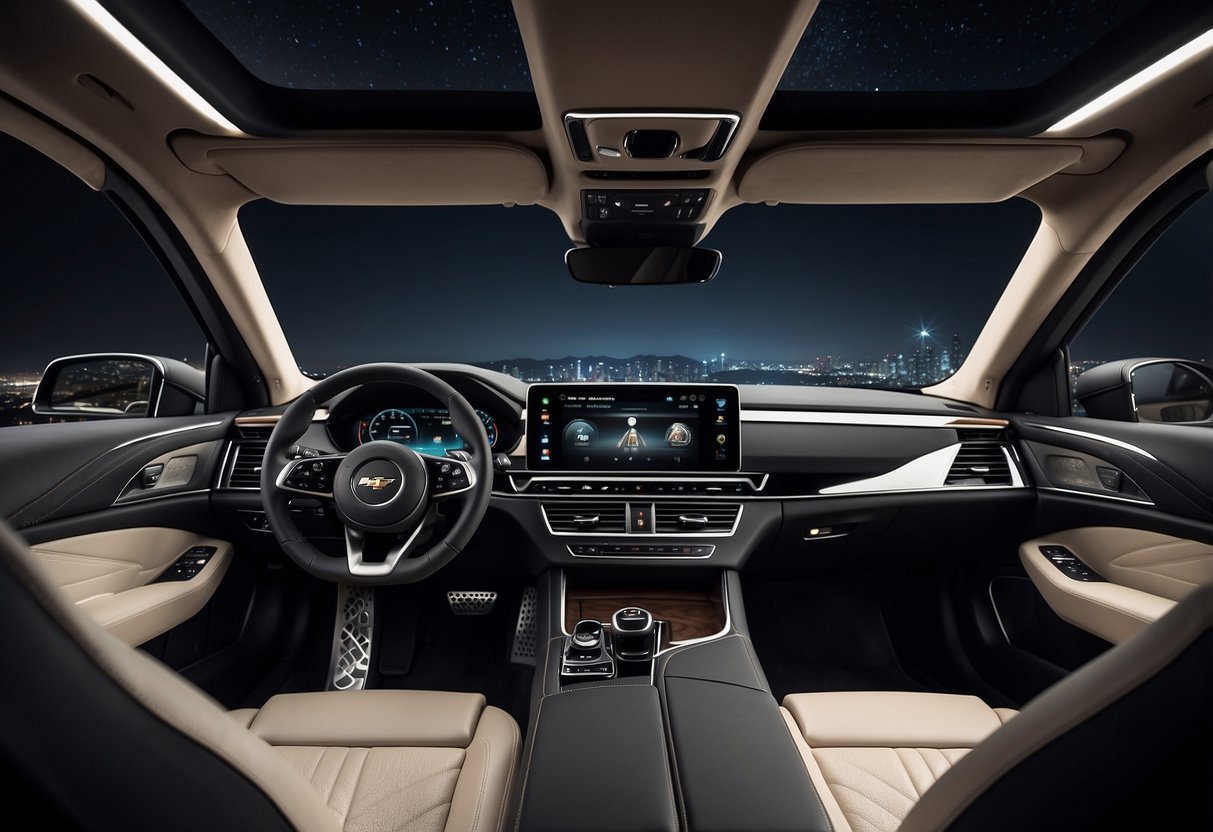
Innovative Automotive Brands and Models
Luxury car interiors have undergone significant transformations with new technology and design philosophies. Notable brands and models are pushing the boundaries to offer unprecedented levels of comfort and sophistication.
Standout Luxury Brands
Bentley and Rolls-Royce are leaders in luxury automotive interiors. Bentley’s craftsmanship is evident in models like the Continental GT, where hand-stitched leather and intricate wood inlays create an opulent cabin. Rolls-Royce takes customization to another level with the Phantom, offering bespoke options that cater to the most discerning tastes.
Mercedes-Benz continues to set benchmarks, especially with its S-Class, which boasts high-grade materials and cutting-edge technology. Lexus stands out for its refined comfort, blending traditional craftsmanship with advanced features.
BMW’s dedication to driver-centric design ensures that luxury does not come at the expense of functionality. Audi’s A8 model offers a minimalist yet luxurious interior, rich with technology and superior materials.
Notable Models Setting the Standard
The Bentley Continental GT exemplifies luxury with its customizable, high-quality interior finishes. Rolls-Royce Phantom remains a symbol of ultimate luxury, providing unparalleled personalization options. The Mercedes-Benz S-Class continues to innovate with features like massage seats and a sophisticated infotainment system.
Porsche 911, while known for its performance, does not compromise on interior luxury, incorporating high-quality materials and advanced ergonomics. The Audi A8 offers a quiet and serene cabin environment, with advanced driver-assistance systems enhancing the experience. Genesis, with its new models, is making a mark by offering premium features typically found in higher-priced vehicles.
Tesla Model 3 represents a different kind of luxury, focusing on minimalist design and cutting-edge technology. Range Rover continues to impress with its combination of elegance and rugged capability, ensuring a plush interior that can handle off-road conditions without sacrificing comfort.
Emerging Contenders in Luxury Interiors
Genesis is gaining recognition for offering interiors that rival traditional luxury brands. Their attention to detail and emphasis on quality materials make their models worthy of consideration.
Tesla, while disruptive in its approach, brings a unique perspective to luxury with its focus on clean, futuristic design and high technology integration.
New entries in the market are challenging established norms, offering top-tier materials and innovative technologies. These emerging brands are reshaping perceptions of what luxury means in the automotive industry. As more brands enter the luxury segment, consumers benefit from a wider range of choices, each offering unique attributes and advanced features.
Impact of Technological Innovation on Design
Technological advancements are profoundly influencing luxury car interiors. New innovations are redefining the integration of smart features, user experience, and future design trends.
Integration of Smart Technology
Modern luxury vehicles showcase the seamless integration of smart technology within the interior design. Central consoles and dashboards now feature advanced touchscreens with high resolutions. These interfaces support navigation, entertainment, and communication, thereby enhancing the driving experience.
Voice-activated controls and AI-driven assistants allow for hands-free operation, contributing to a safer environment. Additionally, augmented reality (AR) displays project critical information directly onto the windshield, ensuring drivers keep their eyes on the road.
Attention to build quality is paramount, ensuring that such technologies are not only functional but also aesthetically pleasing. Materials like brushed aluminum and polished wood are frequently used to complement these digital interfaces, blending cutting-edge tech with luxurious design elements.
User Experience and Interactive Controls
User experience in luxury car interiors has dramatically evolved due to technological innovations. Interactive controls on center consoles are designed for intuitive use, with touch-sensitive panels replacing traditional buttons. This shift reduces clutter and creates a sleek, modern look.
Haptic feedback technology provides a tactile response when controls are used, ensuring an engaging user interaction. Integrated ambient lighting changes according to user preferences, enhancing the mood within the car’s interior.
Customization options are extensive; drivers can personalize seat positions, climate settings, and infotainment systems. Personalized profiles save these settings, allowing for a tailored experience every time the vehicle is used. This focus on user-centric design underscores the importance of merging comfort with technological efficiency.
Future Trends in Automotive Interiors
Looking ahead, automotive interiors are set to feature even more technological disruptions. Autonomous driving technology will transform the traditional car layout, freeing up space and enabling new interior design possibilities. Rotating seats and flexible cabin configurations could become commonplace, facilitating social interaction and relaxation.
Sustainability is another crucial trend. Car manufacturers are exploring eco-friendly materials without compromising on luxury. Recycled fabrics and vegan leather are increasingly being integrated into high-end interiors.
Finally, immersive experiences through virtual reality (VR) and enhanced connectivity with smart devices are likely to become standard. These advancements will make car interiors more interactive and personalized, redefining what luxury means in the automotive world.



